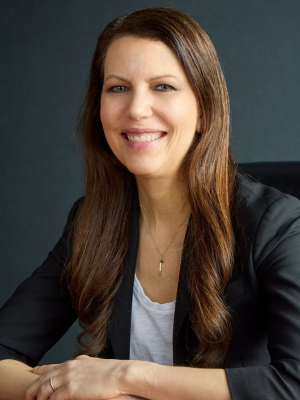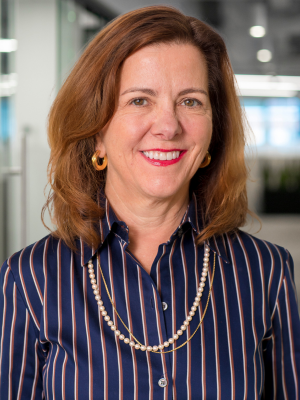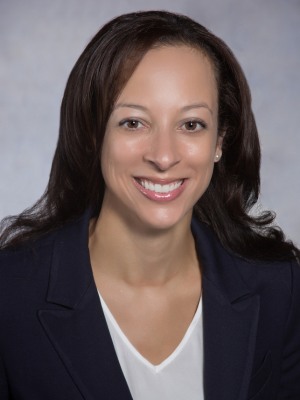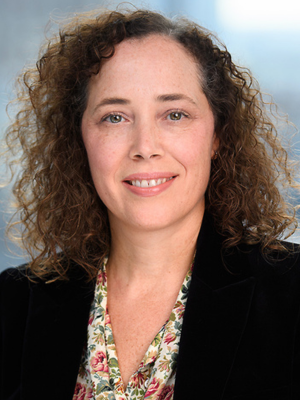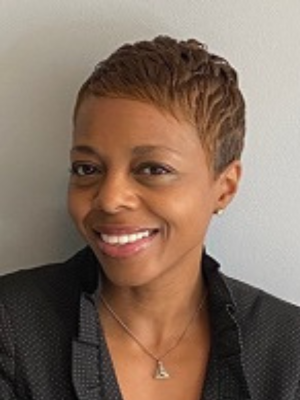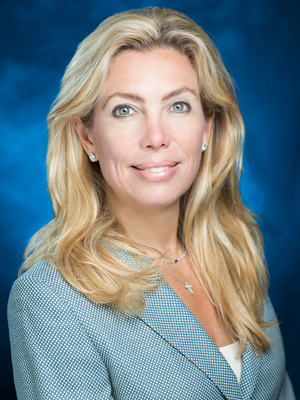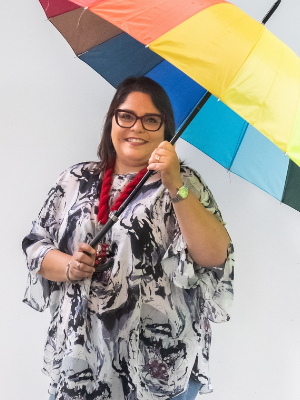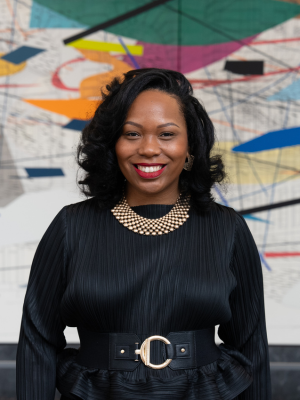 “I found my way to my career, but it wasn’t a career that I even knew existed, or even had visions of wanting to become,” says Shekhinah Bass, Managing Director, Head of Talent Strategy, at Goldman Sachs. “No one in my family had gone to college. No one had worked on Wall Street; all of these things were completely new to me. Oftentimes people say that you can’t become what you can’t see, but you can.”
“I found my way to my career, but it wasn’t a career that I even knew existed, or even had visions of wanting to become,” says Shekhinah Bass, Managing Director, Head of Talent Strategy, at Goldman Sachs. “No one in my family had gone to college. No one had worked on Wall Street; all of these things were completely new to me. Oftentimes people say that you can’t become what you can’t see, but you can.”
In turn, Bass champions diversity herself formally via her role and also through her authenticity. As a mother with a successful career, she grounds herself with the mantra, “run your own race.”
Upon joining Goldman Sachs as a summer analyst, Bass never envisioned her journey leading to a career in the financial services industry. Her intent was to go to law school after graduation as she believed it was the only way to add value to society. However, through her experience at the firm, she learned what she really enjoyed doing was advocating for diverse professionals which she had the ability to do in Human Capital Management (HCM) at Goldman Sachs. Ultimately, she accepted an offer to work on the diversity, equity and inclusion team and realized it was also an opportunity to make a meaningful societal impact.
Feeling passionate about engaging in the Human Capital Management space, Bass went on to build her portfolio by working in many different HR disciplines, including performance management, employee relations, and chief of staff to the global head of HCM. She now is the head of talent strategy where she oversees the execution of a wide range of talent management priorities, focusing on development, engagement and retention.
Building the Pipeline of Diverse Talent
One of the ways that Bass is making an impact on elevating and empowering diverse professionals at Goldman Sachs is through the Black Analyst and Associate Initiative, where she is one of the coaches. Recognizing that in order to see more diversity in leadership, there needs to be a way to foster young professionals and build a pipeline from the beginning, the Black Analyst and Associate Initiative creates a formal structure for engaging and providing support for diverse professionals from the earliest stages of their careers.
Bass explains, “the experience is based on the relationships. We bring together the Black analyst, their manager and also a coach that’s assigned to them. It’s a trio that works together to make sure that analyst or associate is having the best experience while giving them advice and coaching them through how to be a successful professional at the firm.”
The program has proven to be beneficial for diverse junior talent as they begin their journeys at Goldman Sachs.
“Our junior talent is having a more positive experience. And that’s because we have this more structured program versus only relying on it to happen organically. Having that structure adds more rigor in making sure that you capture that person who may be shy and not want to go to an event where relationships may form, but is still very talented, smart and could benefit from a coach.”
Another development piece in building the pipeline for diverse professionals to excel at Goldman Sachs is the Women’s Career Strategies Initiative. The program is 4-6 months and includes women who are at an associate level, nearing promotion to vice president. Throughout the program, women have access to developmental content and are invited to events where they engage with senior leaders, both women and men, across the firm. The connections that the women make with their cohort are also invaluable to their career growth.
As a sponsor in the program, Bass speaks to its impact on promoting and retaining women.
“I had about 10 high performing women who I got to spend 5 months with — getting to know them, giving them advice, talking through this transition as they were coming up on moving from an associate to a VP, hopefully. And nearly everyone got promoted to a VP, which I’m very proud of.”
She continues, “We’ve seen many alumni of the program have long and successful careers at the firm…They weren’t partners or MDs when they went through this program, they were associates, and so it shows you that we were able to really engage them, retain them, get them excited to work at the firm and feel connected to continue to grow their careers at the firm beyond the program.”
Managing Change and Taking Advantage of the Support Around You
Bass knows from experience that finding the right support can be key when navigating transitions both professionally as well as personally.
“Coming from humble beginnings to get to where I am, I feel proud, but also feel very fortunate that I had so many mentors and sponsors along my life to get to this point.”
Bass talks about the importance of recognizing that the phases of life can create questions of how to proactively manage your career at different critical points and nuanced advice is required for the challenge at hand.
“In each moment, I was always able to identify someone who, even if they haven’t gone through the same experience, had some knowledge that they could share with me on how I can navigate that moment.”
An important mentor for Bass was a manager she sought guidance from during her first pregnancy.
“When I first found out I was expecting I was excited because it was what we wanted, but when it became a reality, I got very nervous and scared. I was grateful that I had this ‘maternity mentor’ that I could go to and ask questions about, ‘How do I communicate this to the team? How do I prepare to be out? How do I operate when I get back?’”
Now a mother of five, Bass knows what it takes to transition back from maternity leave. She advocates for taking advantage of the support that’s around you and feels fortunate that at Goldman Sachs they have resources like backup childcare and lactation rooms to help support working parents. She has learned that it is important to, “be willing and open to taking on that help because I think a lot of times people feel like they need to be able to do everything. And you really don’t.”
Run Your Own Race at Your Own Pace
Along the path of her career, Bass found a mantra to keep her grounded: “I need to run my own race.” She notes that it can be easy to get distracted trying to keep up with everyone around you, but in the end, you must prioritize what is important to you professionally and personally.
“It’s fine to look to your left and look to your right, and that will give you some sense as to what might be important to you, or a goal you might want to set for yourself, and that’s fine. But don’t get caught up in the competition of it all.”
Part of setting your own pace is creating boundaries and sticking to them.
“You have to be clear on setting boundaries and priorities. Any organization is going to take all that you’re willing to give, so it’s up to you to be the person to set those boundaries for yourself. It doesn’t mean that you’re not going make sacrifices or that there will not be this push and pull constantly, but each time that happens you need to be very thoughtful about whether it’s the right trade-off.”
Showing up with Authenticity
Living her life at her own pace is an example of how Bass shows up authentically and pushes for things that she values in a genuine way.
“I’m a Black woman who is also a mother and a wife to my husband. I have all these different ways that I define myself, and I bring all of that to all the spaces that I enter.”
Bass believes it is important to show up authentically as it sets the tone for those coming up behind her.
“It’s simple things. For example, how I wear my hair at work sets the tone for other young Black women coming into the organization. I’ve had people ask me, ‘is it okay to wear my natural hair?’ I’ve never given myself the title of cultural or diversity change agent, but it is this notion of showing up authentically to the spaces that I occupy, that I hope allows this shift or change to happen naturally.”
From her enthusiasm, Bass clearly brings her whole self as much to her personal life as she does her professional. A mother of five with an engaging career, Bass admits that these days her leisure time is devoted to her family, particularly as her two eldest children play on travel soccer teams. Calling herself a “budding soccer mom”, Bass expresses joy in having the opportunity to take her children to practice and shouting from the sidelines when they play in tournaments.
By Jessica Robaire

